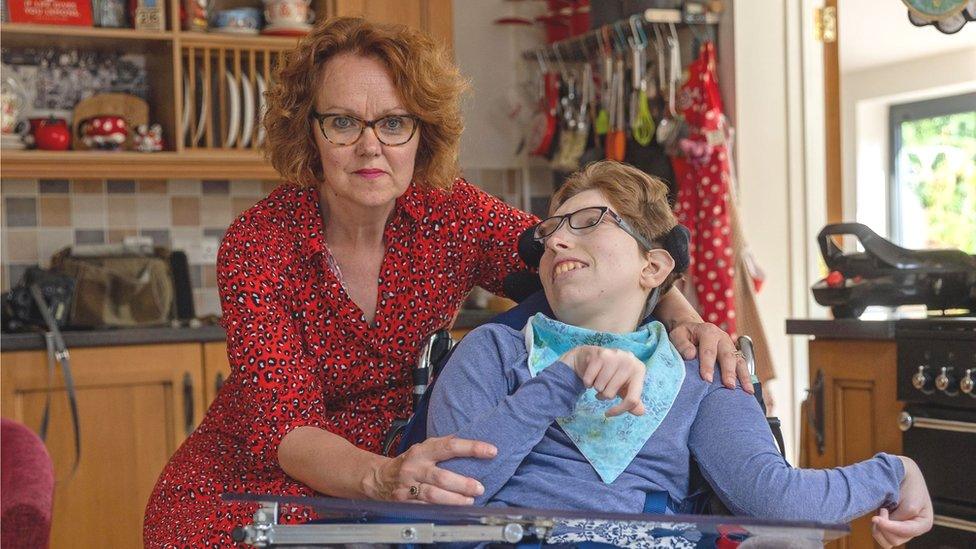Sunderland parents protest over loss of respite service
- Published
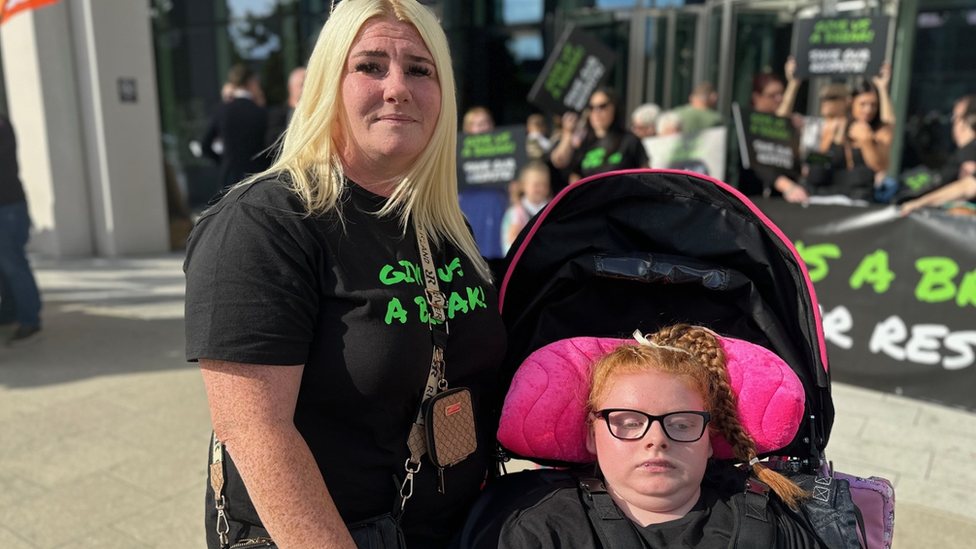
Stacey Smith provides round-the-clock care for her daughter Ellie and uses the service at Grace House
Families with disabled children say they will be "burnt out" if a respite care service is allowed to close before a replacement is found.
Grace House in Sunderland is due to stop providing short breaks following unsuccessful talks with the city council over costs.
Parents, carers and children staged a protest outside City Hall, urging the council to maintain funding.
The authority said it was continuing to "consider" alternative sites.
Together for Children (TfC), which provides services on behalf of the council, was asked to pay a "substantial" rise in rent, the council said.
But when negotiations failed, the decision to end the service, which currently offers up to eight beds for children with disabilities, was made.
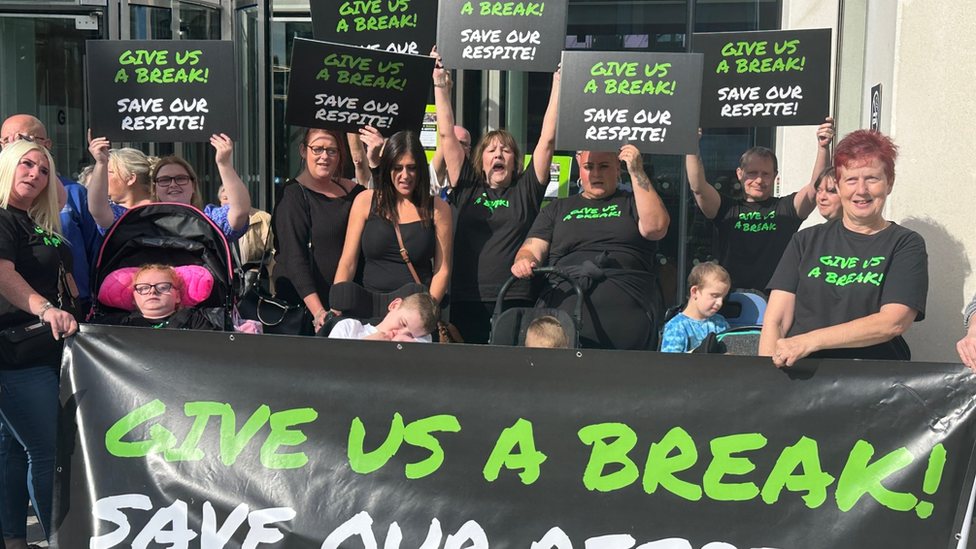
Family members and their children campaigned outside Sunderland's City Hall
Campaigner Pamela Mann told the BBC that families were calling on the council to either renegotiate a lease with the charity, or agree to keep funding the service until a replacement was found.
"These families are in despair, they're desperate," the parent and former Conservative councillor said.
"This is the only respite they have, it's the only break. They've gone through six weeks of the summer holiday they are literally on their knees."
The service currently operates respite care inside the charity's purpose-built premises in Bardolph Drive, which first opened in 2003.
But parent Stacey Smith said the charity had effectively "shut the door" on her 14-year-old daughter, Ellie, who requires round-the-clock care and is in a wheelchair.
"I look forward to that break. It's once a month, were not asking for much.
"I'm not just her mam, I'm a nurse. It's a 24/7 job.
"There can be weeks where I go with no sleep when Ellie is unwell, she needs care throughout the night. I am one person, I rely on that break."
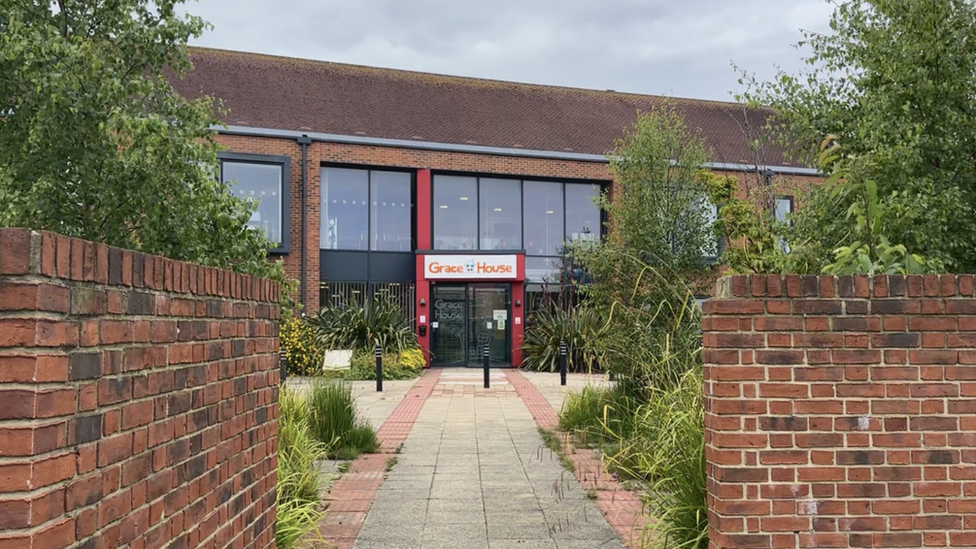
Grace House offers room for up to eight children each night
Mother-of-three Emma Hubbard added that respite care for her son, who has autism, had been a "lifeline" and had allowed her to maintain her job as an intensive care sister.
She said it could be months, or even years, before a replacement service is found.
As part of the protest, the families handed in a petition which has received nearly 7,000 signatures.
Sunderland City Council said that its partners, including TfC, were "very aware" of the concerns raised and "understand how upsetting" the loss of the service was for families.
However, a spokesperson said the charity's terms for a new lease included a "substantial cost increase" and it had been "unable to reach an agreement" over the terms of the agreement.
They said that it was already paying increased rent "for the time we've been allowed to stay in the building".
They added the authority had "always remained open" to discussing the details of the agreement, and was continuing to "consult and consider new alternatives and proposals".
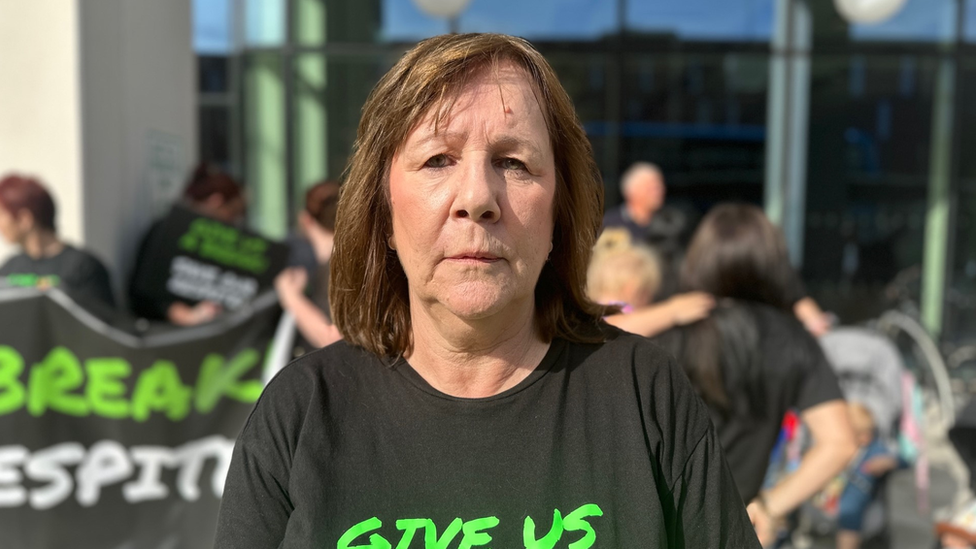
Pamela Mann said nearly 7,000 people had signed a petition calling on the council to continue funding
Grace House chief executive Victoria Brown said the organisation had to "adapt to meet the changing needs" and was working with parents to discuss the closure of the service.
She said: "We understand the importance of [respite care] for families and we support their calls for a transition to a new provision to be as smooth as possible."
She added the charity would continue to offer support for other services including counselling, work experience and youth groups.
However, disability support group Sense said the concerns raised over the loss of the service in Sunderland were echoed across other parts of the country.
Campaigns manager Lizzie Green said families were feeling "burnt out and exhausted" and there was a need for further government funding to make the provision more accessible.
"We're seeing budget implications and restrictions being put on respite provision across the country, in Sunderland, but also further afield and that's leading to inconsistent provision and a lack of quality around the provision of respite services," she added.
A Department of Health and Social Care spokesperson said it had earmarked £327m to support local authorities with health and care services, including short breaks and respite care.

Follow BBC North East & Cumbria on Twitter, external, Facebook, external and Instagram, external. Send your story ideas to northeastandcumbria@bbc.co.uk, external.
- Published23 July 2023
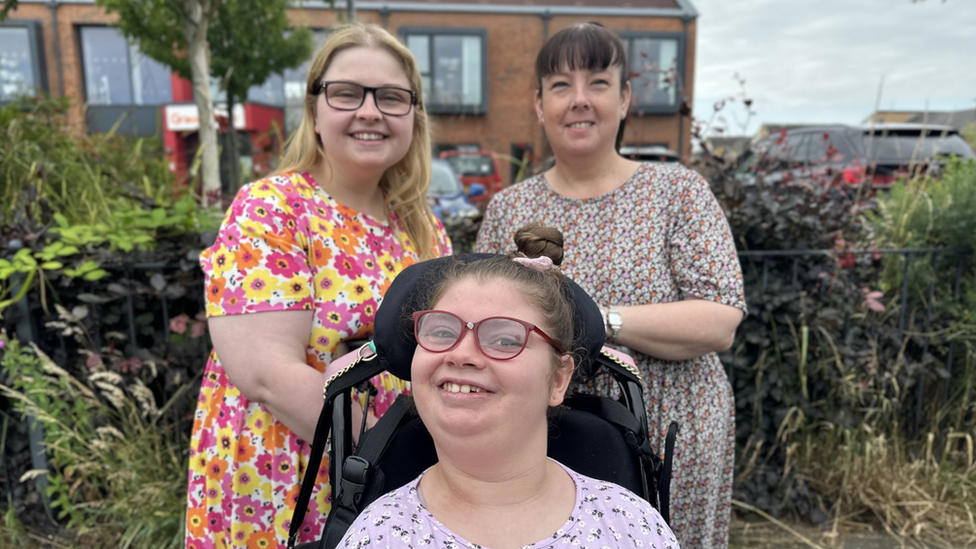
- Published3 August 2023
